第15章 CHAPTER VI. MR. COULSON INTERVIEWED(2)
"Why, because he was a crank, sir," Mr. Coulson answered confidentially. "There was no other reason at all. Take this last voyage on the Lusitania, now. He spoke to me the first day out because he couldn't help it, but for pretty well the rest of the journey he either kept down in his stateroom or, when he came up on deck, he avoided me and everybody else. When he did talk, his talk was foolish. He was a good chap at his work, I believe, but he was a crank. Seemed to me sometimes as though that humdrum life of his had about turned his brain. The last day out he was fidgeting all the time; kept looking at his watch, studying the chart, and asking the sailors questions. Said he wanted to get up in time to take a girl to lunch on Thursday. It was just for that reason that he scuttled off the boat without a word to any of us, and rushed up to London.""But he had letters, Mr. Coulson," the reporter reminded him, "from some one in Washington, to the captain of the steamer and to the station-master of the London and North Western Railway. It seems rather odd that he should have provided himself with these, doesn't it?""They were easy enough to get," Mr. Coulson answered. "He wasn't a worrying sort of chap, Fynes wasn't. He did his work, year in and year out, and asked no favors. The consequence was that when he asked a queer one he got it all right. It's easier to get a pull over there than it is here, you know.""This is all very interesting," the reporter said, "and I am sure I'm very much obliged to you, Mr. Coulson. Now can you tell me of anything in the man's life or way of living likely to provoke enmity on the part of any one? This murder was such a cold-blooded affair.""There I'm stuck," Mr. Coulson admitted. "There's only one thing I can tell you, and that is that I believe he had a lot more money on him than the amount mentioned in your newspapers this morning. My own opinion is that he was murdered for what he'd got. A smart thief would say that a fellow who takes a special tug off the steamer and a special train to town was a man worth robbing. How the thing was done I don't know--that's for your police to find out--but I reckon that whoever killed him did it for his cash."The reporter sighed. He was, after all, a little disappointed.
Mr. Coulson was obviously a man of common sense. His words were clearly pronounced, and his reasoning sound. They had reached the courtyard of the hotel now, and the reporter began to express his gratitude.
"My first drink on English soil," Mr. Coulson said, as he handed his suitcase to the hall-porter, "is always--""It's on me," the young man declared quickly. "I owe you a good deal more than drinks, Mr. Coulson.""Well, come along, anyway," the latter remarked. "I guess my room is all right, porter?"--turning to the man who stood by his side, bag in hand. "I am Mr. James B. Coulson of New York, and I wrote on ahead. I'll come round to the office and register presently."They made their way to the American bar. The newspaper man and his new friend drank together and, skillfully prompted by the former, the conversation drifted back to the subject of Hamilton Fynes. There was nothing else to be learned, however, in the way of facts. Mr. Coulson admitted that he had been a little nettled by his friend's odd manner during the voyage, and the strange way he had of keeping to himself.
"But, after all," he wound up, "Fynes was a crank, when all's said and done. We are all cranks, more or less,--all got our weak spot, I mean. It was secretiveness with our unfortunate friend.
He liked to play at being a big personage in a mysterious sort of way, and the poor chap's paid for it," he added with a sigh.
The reporter left his new-made friend a short time afterwards, and took a hansom to his office. His newspaper at once issued a special edition, giving an interview between their representative and Mr. James B. Coulson, a personal friend of the murdered man.
It was, after all, something of a scoop, for not one of the other passengers had been found who was in a position to say anything at all about him. The immediate effect of the interview, however, was to procure for Mr. Coulson a somewhat bewildering succession of callers. The first to arrive was a gentleman who introduced himself as Mr. Jacks, and whose card, sent back at first, was retendered in a sealed envelope with Scotland Yard scrawled across the back of it. Mr. Coulson, who was in the act of changing his clothes, interviewed Mr. Jacks in his chamber.
"Mr. Coulson," the Inspector said, "I am visiting you on behalf of Scotland Yard. We understand that you had some acquaintance with Mr. Hamilton Fynes, and we hope that you will answer a few questions for us."Mr. Coulson sat down upon a trunk with his hairbrushes in his hand.
"Well," he declared, "you detectives do get to know things, don't you?""Nothing so remarkable in that, Mr. Coulson," Inspector Jacks remarked pleasantly. "A newspaper man had been before me, I see."Mr. Coulson nodded.